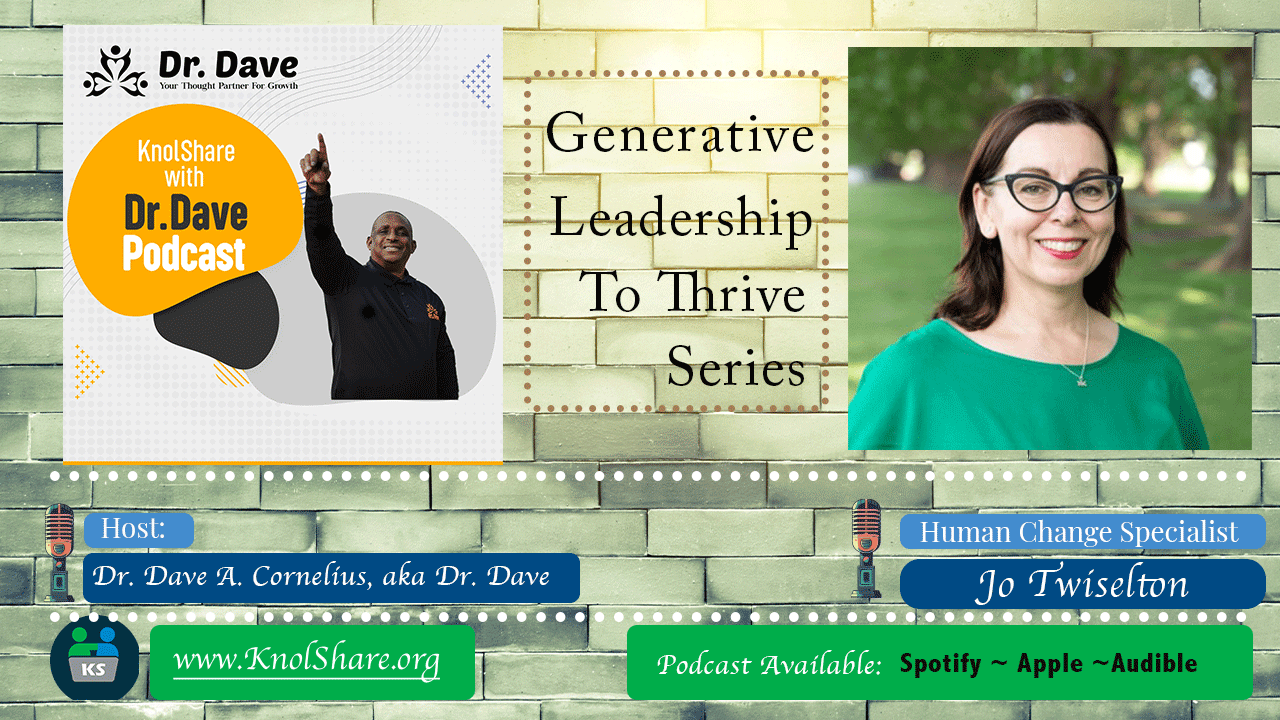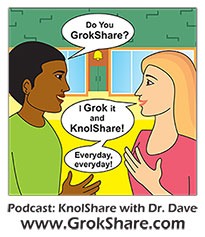E139: What Did We Learn from Climate Change Peer-Coaching?

What did we learn from climate change peer-coaching sessions?
Welcome to the KnolShare with Dr. Dave podcast. I am Dr. Dave A. Cornelius, your host, affectionately known as Dr. Dave.
I am reflecting on my peer coaching experience for Climate Change with people worldwide. I invited Babara Bates, my peer coach. Although she could not make it, she responded to the questions, which I will share as we converse.
I also invited Mary Rafferty, but she could not make it. I spent three coaching sessions with Mary, and we learned much from each other.
Jo Twiselton and I spent three coaching sessions together and shared information that went beyond the scope of a typical session. I am grateful for Jo’s openness to exploring and learning together.
Before we start our conversation, let’s define climate change coaching. Six months ago, I was unsure what it was, but I may now have a better perspective.
Google Gemini AI synthesized the best definition of Climate Coaching.
“Climate coaching is a form of coaching that helps individuals or organizations identify and implement actions to address climate change, focusing on personal and professional goals related to sustainability by guiding them through exploring their values, overcoming barriers, and creating actionable plans to reduce their environmental impact; essentially, it's a supportive process to navigate climate concerns and take meaningful steps towards a more sustainable lifestyle or business practice.”
Barbara Bates Responses:
Questions to consider or make a recommendation for change:
- Reflecting on our climate coaching sessions, what key takeaways can directly influence organizational sustainability conversations?
- Barbara: I have confidence that a huge body of knowledge is already available to underpin such conversations. This can help overcome the feeling that there is just too much to do, it is too big, and it's too late anyway. I am also thinking of several things in the UK - our Prince William's Earthshot prize, the website Fix the News, which focuses on positive initiatives and achievements, and the nuclear fusion project in North Nottinghamshire, close to where I live.
- How can we leverage the emotional and psychological insights gained from climate coaching to foster more impactful sustainability dialogues?
- Barbara: We need conversations we can explore with the other party rather than trying to convert them to our point of view. We do not want them to feel guilty, inadequate, or judged. We must respect where they are, accept their emotions and feelings, and encourage them to do the same. Emotions are data and must be acknowledged. We can explore what they want - what would it look like to them if the climate ‘problem’ was solved? Having set measurable goals and a vision, work backward from that desired future to elicit the necessary actions.
- In what ways can the coaching process itself be a catalyst for encouraging green innovation and climate-positive business practices?
- Barbara: A client-led process, without any forced agenda, can help unlock individual creativity. Questions like, What do you want to have happen? If everything goes as you wish, what is that like? Where else have you successfully initiated and embedded a change?
- What strategies from our sessions would you recommend for helping individuals and teams overcome resistance to sustainability initiatives?
- Barbara: Start by accepting the resistance and explore it fully. It is there for a reason: to protect some aspect of the body-mind system. What is it doing for the person? How is it that I'd show up for different individuals?
- How can the lessons learned from climate coaching be integrated into leadership development to better support sustainable transformation within organizations?
- Barbara: Focus more on the whole person and acknowledge the importance of self-awareness, especially our emotions.
- As explored in our coaching, what role do empathy and active listening play in facilitating successful sustainability adoption?
- Barbara: This is crucial in any coaching situation. When the person feels safe, is not judged, and does not need to defend their perceived lack, their energies can be released outwards to do what they become aware can be done.
- How can organizations translate the personal growth and mindset shifts from climate coaching into broader systemic changes that support green innovation and long-term sustainability goals?
- Barbara: Focus on the whole person and acknowledge the value of emotions. Ensure those at the top are really on board.
Podcast (ks_dd): Play in new window | Download (41.8MB) | Embed
Subscribe: Apple Podcasts | RSS
